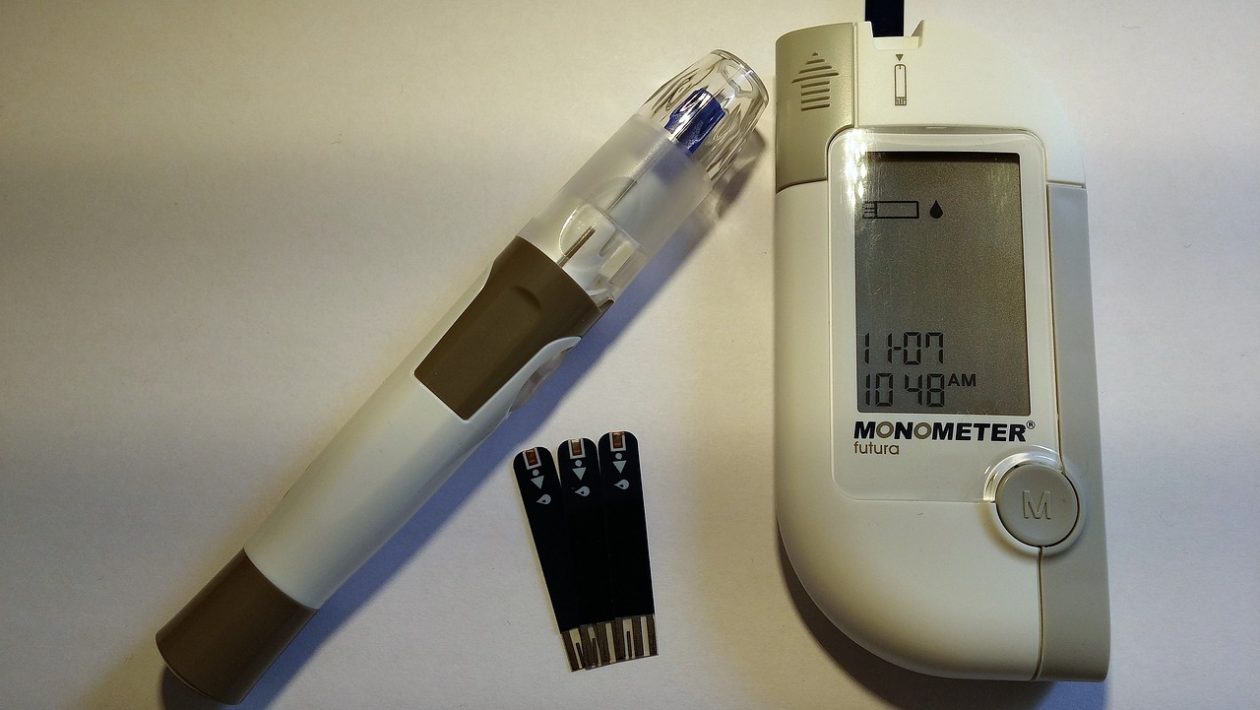Semaglutide has become a groundbreaking pharmaceutical drug because of its unique qualities as an outstanding glucagon-like peptide-1 (GLP-1) receptor agonist. Its unexpected impact on shedding pounds has garnered significant interest, even though its primary purpose is treating individuals with type 2 diabetes. This article will discuss how long does it take for semaglutide to work and the impact it causes.
We’ll also examine how it aids individuals in shedding pounds by regulating their hunger and causing them to experience fullness after consuming smaller portions. Those considering Semaglutide as a weapon in their weight control arsenal would benefit from acquainting themselves with the drug’s numerous effects.
Table of Contents
Semaglutide For Weight Loss
A common question among most people is, “how does Semaglutide work?”
Semaglutide’s activity stems from its structural similarity to the endogenous hormone GLP-1. Semaglutide stimulates GLP-1 receptors, primarily in the pancreas, intestines, and brain. It triggers a chain of events in the body that has far-reaching effects on blood sugar and appetite management.
Semaglutide increases glucose-dependent insulin secretion in the pancreas. It can thus avoid hypoglycemia (low blood sugar) because it promotes insulin release only in response to elevated blood glucose levels.
Semaglutide’s ability to improve glycemic control without putting patients at risk for hypoglycemia makes it a valuable tool for managing type 2 diabetes.
In addition, Semaglutide delays gastric emptying, reducing the rate at which nutrients release into the bloodstream. It not only aids in postprandial blood sugar stabilization but also aids in the sensation of fullness and satiety. Both of these can help in reducing overall food consumption.
Nonetheless, the impact of Semaglutide on weight loss is not limited to these metabolic actions alone. The satiety area of the brain, where GLP-1 receptors are activated, is a significant player in its ability to control food intake.
Semaglutide reduces hunger and food cravings by increasing the brain’s sensitivity to satiety. It, in turn, causes a reduction in overall food consumption, which aids in weight loss.

The Role Of Weight Loss Of Semaglutide
So, how does Semaglutide work for weight loss? Well, the GLP-1 receptor agonist semaglutide has received much attention for its extraordinary function in weight loss.
It was initially meant to treat type 2 diabetes. As a side effect of testing for diabetes management, it turned out to be effective in helping people lose weight.
It prompted more research into the possibility of using it to treat obesity. Semaglutide’s ability to promote weight loss is due to its novel dual-action mechanism. It affects hunger regulation and energy balance in both the body and the mind.
Hunger control
GLP-1 receptors, primarily found in the pancreas and the brain, are the principal targets of semaglutide’s effect. Semaglutide increases insulin secretion decreases glucagon release, and delays stomach emptying by acting like GLP-1.
People with diabetes can better manage their blood sugar levels due to this. Concurrently, GLP-1 receptor activation in the brain’s satiety area reduces hunger pangs and controls overeating by eliciting a feeling of fullness and satiety.
Calorie restriction
Semaglutide aids weight loss by reducing hunger and enhancing satiety, two mechanisms that occur naturally when taking the drug. It helps people develop healthy eating routines by encouraging portion management and decreasing snacking.
Impact on Reward Pathways
According to the research, Semaglutide may also affect the brain’s reward pathways, linked to food cravings and overeating. In addition to aiding weight loss, this impact helps lower cravings for harmful, high-calorie foods.
Effects on Metabolism
Semaglutide reduces hunger, although it may also cause beneficial metabolic changes. Weight loss and enhanced metabolic health may result from its ability to decrease fat mass and improve lipid profiles by lowering triglyceride levels and raising good HDL cholesterol, among other beneficial effects.
How Fast Does Semaglutide Work For Weight Loss?
Semaglutide’s weight-loss-initiating effects can progress at different rates for different people. A person’s initial weight, metabolism, compliance with prescribed dosages, nutrition, exercise, and general health all play a role.
Consistent use of Semaglutide typically results in noticeable weight loss within a few weeks. Changes were most evident within the first 12 weeks of treatment in clinical trials addressing weight management.
Weight loss and enhanced metabolic markers were among the results of these adjustments. However, it is essential to remember that everyone reacts differently and that some may progress faster or slower than others.
Studies and Clinical Trials For Weight Loss
So, how long does it take for Semaglutide to work? Doctors uncovered the truth about Semaglutide’s promise as a weight-management tool through clinical research.
Semaglutide’s effects on weight loss piqued the interest of scientists after discovering them by accident during clinical trials for treating type 2 diabetes.
Doctors further explored the potential of this substance as an anti-obesity treatment in subsequent investigations aimed at examining its weight-reducing capabilities.
Semaglutide’s efficacy in weight control has been the subject of multiple clinical investigations, all of which have yielded encouraging findings.
Semaglutide treatment resulted in statistically and clinically substantial weight loss compared to placebo treatment in all participants.
In some trials, participants lost as much as 15 percent of their starting weight, demonstrating the drug’s ability to cause significant changes in body composition.
Furthermore, these trials showed that the weight loss benefits of Semaglutide were not restricted to a select population. Instead, people of all ages, sexes, and ethnic backgrounds can experience its benefits.
This widespread effectiveness highlights Semaglutide’s potential to become a broadly applicable and game-changing therapy in the fight against obesity.
The safety profile of Semaglutide has also come to light through clinical trials, and the results suggest that it is generally well-tolerated. Mild gastrointestinal disturbances and other common side effects fade with time, highlighting the significance of sticking with therapy as prescribed.
As doctors learn more about Semaglutide, it may be a pivotal tool in the battle against obesity-related health problems worldwide.

The Weight-Controlling Advantages Of Semaglutide
Semaglutide’s many advantages have made it a hot topic as a possible game-changer in weight control. Let’s have a look at the benefits of Semaglutide as a weight reduction aid:
Successful Weight Loss
Semaglutide is remarkably effective in this regard. Clinical studies on Semaglutide have shown that it significantly reduces body weight compared to a placebo.
Suppression of Appetite
Semaglutide’s ability to control hunger is a significant factor behind its success. The medicine works by stimulating GLP-1 receptors in the brain’s satiety region. It makes people feel fuller for longer, reducing their appetite and the desire to snack between meals.

Better Management of Blood Sugar
Semaglutide’s primary use in treating type 2 diabetes emphasizes maintaining stable blood sugar levels. Maintaining consistent blood sugar levels can help with weight control because it reduces the temptation to consume when blood sugar levels dip.
Heart-Healthy Perks
In addition to its weight-loss effects, Semaglutide can lower the risk of heart attack, stroke, and death from cardiovascular disease. Because of this, it is a good choice for those who are overweight and diabetic since they reduce the likelihood of cardiovascular problems.
Long-Term Success in Weight Loss
The effects of Semaglutide on appetite and metabolism aid in maintaining weight reduction. Semaglutide offers a more steady and long-lasting strategy for losing weight than crash diets or fad weight reduction regimens.
Alterations to Your Way of Life
Semaglutide works best when combined with a healthy diet and regular exercise. It’s a potent trigger that keeps people on track with their healthy behaviors and creates a feedback loop that encourages further development.
Possibility of Reducing Obesity-Related Illnesses
Hypertension and dyslipidemia are only two of the many medical issues linked to obesity. Semaglutide’s potential to promote weight loss and reduce these obesity-related conditions is encouraging.
Surgical Alternative
Semaglutide is a safe and effective alternative to bariatric surgery for people who are not candidates or are unwilling to undertake the procedure.
How Long Does It Take For Semaglutide To Work?
When contemplating this medication for weight reduction, keeping a reasonable outlook on how long does Semaglutide take to work is essential. While some weight reduction may be noticeable in the first few weeks, genuine, long-term success takes a more prolonged time commitment.
According to experts, one should maintain treatment with Semaglutide for at least six months and up to a year. During this period, doctors can check in to see how the patient is doing, make any required adjustments to the dosage, and recommend good habits to help the medicine work better.
Adverse Reactions To Semaglutide
Users should be mindful of the potential adverse effects of Semaglutide, despite the drug’s promising benefits in treating type 2 diabetes and assisting in weight reduction.
These unwanted effects are minor and temporary, but a few might be severe. It is crucial to learn about the potential side effects of Semaglutide before beginning therapy.
General Adverse Reactions
Nausea
Mild to severe nausea is among the most commonly reported Semaglutide side effects. This side effect is expected in the first few weeks of therapy but usually fades as the body becomes used to the drug.
Healthcare professionals may advise patients to begin treatment with a lesser dose and increase it gradually if they experience nausea.
Vomiting
If nausea persists, vomiting may occur in some people. This unwanted effect often fades away with prolonged use, much like nausea does.
Diarrhea
In some people, Semaglutide causes diarrhea or loose stools. One can control this adverse effect by drinking enough water and eating a healthy, well-rounded diet.
Headache
Some users have complained of headaches, which are often moderate and short-lived.

Reactions at the Injection Site
Injection sites may become red, swollen, or itchy after receiving Semaglutide subcutaneously. One can mitigate these responses by regularly switching up the injection locations.
Serious Side Effects
Some people may develop more severe side effects. However, this is unusual, and they should seek medical help immediately if they do. Serious side effects include:
Pancreatitis
Semaglutide has links to a small number of occurrences of pancreatitis, a potentially life-threatening inflammation of the pancreas. Extreme nausea, vomiting, and back and abdominal discomfort are all symptoms.
Hypoglycemia
Hypoglycemia (low blood sugar) is a rare but possible side effect of Semaglutide. It can occur while using many diabetic drugs, so patients should exercise caution.
Nephrotic Syndrome
Semaglutide has links to a small number of acute renal damage cases and chronic kidney disease aggravation.
Symptoms of Allergies
There have been a few reports of allergic reactions to Semaglutide, including skin rash, itching, wheezing, and mouth, lips, tongue, and neck swelling. In circumstances like this, urgent medical care is necessary.
FAQs
1. How long does it take for Semaglutide to work for weight loss?
Consistent use of Semaglutide usually results in weight loss within a few weeks. However, it is common knowledge that one must take the medication for at least six months to a year to achieve meaningful and long-lasting effects.
2. How much weight can you lose in 4 weeks with Semaglutide?
People can lose weight at varying rates. Though some people see results in as little as four weeks, remember that maintaining a significant weight reduction typically takes more time.
3. What happens on the first week of Semaglutide?
It’s possible that people won’t see any changes in their weight within the first week. Minor gastrointestinal adverse effects, such as nausea and diarrhea, have been reported. In most cases, these adverse effects diminish as the body becomes used to the medicine.
4. How do I get the best results from Semaglutide?
If you want the finest results, take the medication exactly as your doctor directs. Use Semaglutide with a healthy diet and frequent exercise for the best weight reduction results. Long-term achievement requires patience and reliability.
5. How does Semaglutide work because I am not losing weight?
Semaglutide’s effects might differ from person to person. Talk with your physician if you’re not shedding pounds as rapidly as you desire. They will be able to oversee your progress, modify your dosage, and suggest changes to your lifestyle that might enhance the effectiveness of the medication.
Final Thoughts
Semaglutide is a game-changing pharmacological development for treating type 2 diabetes and promoting weight reduction. Patients benefit from its dual-action mechanism since it controls blood sugar and hunger by activating GLP-1 receptors.
So, how long does it take for Semaglutide to work? While everyone responds differently to weight reduction treatment, most people start seeing results within a few weeks.
But if you want to lose weight and keep it off for good, you must make a long-term commitment—anywhere from six months to a year. Semaglutide’s promising results so far have given patients and doctors reason to be optimistic about the future of health and wellness management.

